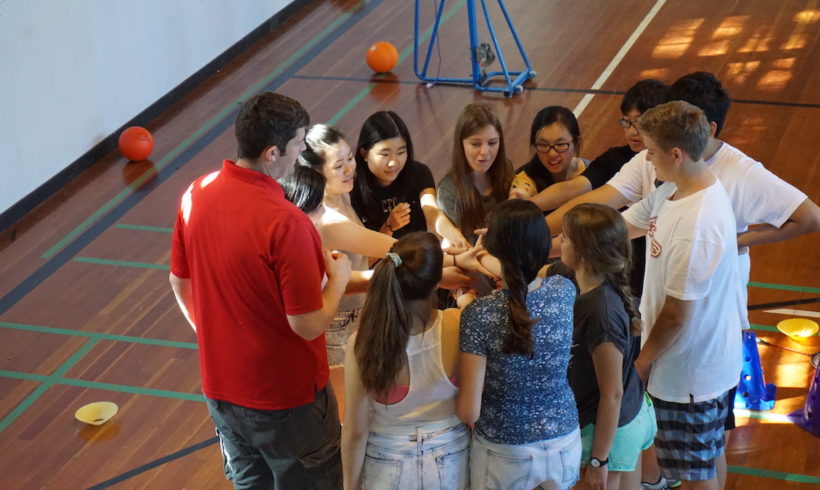In an era defined by unprecedented challenges and rapid global shifts, the emergence of youth leaders is not merely a hopeful trend, but a critical imperative for shaping a sustainable and equitable future. These young visionaries, often in their teens and twenties, are stepping onto the world stage with fresh perspectives, digital fluency, and an unwavering commitment to driving meaningful change. They are not waiting for formal invitations; instead, they are actively building movements, launching initiatives, and advocating for causes that resonate deeply with their generation’s values. This comprehensive article delves into the multifaceted phenomenon of youth leadership, exploring the catalysts behind their ascent, the unique attributes that empower them, the significant hurdles they navigate, and the profound impact they are already exerting across various sectors globally. Understanding and fostering this generation of leaders is paramount for anyone invested in the trajectory of tomorrow’s world.
The Genesis of Youth Leadership’s Ascendance

The current prominence of youth leaders is a direct consequence of a confluence of global factors that have empowered and compelled younger generations to take the reins.
A. Global Interconnectedness Through Technology: Unlike any previous generation, today’s youth have grown up in a world intrinsically linked by the internet and social media. This constant connectivity allows them to:
1. Access Information Instantly: Knowledge about global issues, injustices, and opportunities is readily available, fueling their awareness and desire to act.
2. Mobilize Rapidly: Social media platforms enable them to organize campaigns, protests, and movements with unprecedented speed and reach, transcending geographical boundaries.
3. Learn and Collaborate Globally: They can connect with peers and mentors across continents, fostering diverse perspectives and collaborative solutions to shared challenges.
B. Heightened Awareness of Global Crises: This generation faces an array of existential threats and pressing social issues, including climate change, economic inequality, political instability, and social injustice. Having inherited these complex problems, they feel a profound sense of urgency and responsibility to address them. They are unwilling to accept the status quo.
C. Disillusionment with Traditional Systems: Many young people express a growing distrust in established political, economic, and social institutions to effectively address modern challenges. This disillusionment often propels them to bypass traditional channels and create their own solutions and movements from the ground up.
D. Emphasis on Authenticity and Purpose: Driven by a desire for meaningful impact, young leaders are often motivated by strong personal values and a commitment to authenticity. They seek to align their actions with their beliefs, leading to purpose-driven leadership that resonates deeply with their peers and a growing segment of society.
E. Lower Barriers to Action: The digital age has democratized activism and entrepreneurship. With accessible tools for communication, fundraising, and project management, young individuals can launch initiatives, create content, and build communities with far fewer resources than previously required.
F. Role Models and Peer Inspiration: The visibility of iconic young leaders, like Greta Thunberg in climate activism or Malala Yousafzai in education advocacy, inspires countless others to believe in their own capacity for change. Witnessing peers make a difference validates their potential.
The Distinctive Qualities of Youth Leaders
Youth leaders are not simply younger versions of traditional leaders; they possess a unique set of characteristics and approaches that set them apart and make them particularly effective in today’s world.
A. Digital Fluency and Innovation:
1. Tech-Savvy: They are adept at leveraging digital tools for communication, organization, data analysis, and content creation. They intuitively understand how to harness technology for maximum impact.
2. Early Adopters: They are quick to embrace new platforms and technologies, often pioneering new methods of engagement and advocacy before mainstream adoption.
3. Innovative Problem-Solvers: Unburdened by traditional thinking, they approach complex problems with fresh, often disruptive, solutions, leveraging technology to create scalable impact.
B. Strong Sense of Purpose and Values-Driven:
1. Mission-Oriented: Their leadership is often rooted in a deep passion for a specific cause, whether it’s environmental justice, mental health awareness, or educational equity.
2. Ethical Grounding: They prioritize ethical considerations, transparency, and social responsibility in their initiatives, often challenging systems they perceive as unjust or unsustainable.
3. Authentic Voice: They lead with sincerity and vulnerability, connecting with their audiences on a personal and emotional level, fostering trust and loyalty.
C. Collaborative and Inclusive Mindset:
1. Networked Approach: They often favor horizontal, collaborative structures over hierarchical ones, building broad coalitions and empowering diverse voices.
2. Empathy and Inclusivity: Many youth leaders champion diversity, equity, and inclusion, actively seeking out and amplifying marginalized voices within their movements.
3. Global Perspective: Their interconnectedness fosters a global outlook, enabling them to understand and address issues with a broader, more interconnected lens.
D. Resilience and Adaptability:
1. Learning from Failure: Growing up in a fast-changing world, they are often resilient in the face of setbacks, viewing failures as opportunities for learning and adaptation.
2. Agile Strategies: They can quickly pivot their approaches in response to new information, changing circumstances, or evolving digital trends.
3. Solution-Oriented: While passionate about problems, they are primarily driven by a desire to find and implement tangible solutions, rather than simply identifying issues.
E. Courage and Boldness:
1. Challenging the Status Quo: They are unafraid to speak truth to power, challenge established norms, and advocate for radical changes that might be uncomfortable for older generations.
2. Taking Initiative: They don’t wait for permission; they identify needs and proactively launch projects, campaigns, or organizations to address them.
3. Optimistic Futurism: Despite the daunting challenges they face, many youth leaders maintain a pragmatic optimism, believing in their ability to create a better future.
Challenges Faced by Youth Leaders

Despite their formidable strengths, young leaders encounter unique obstacles that can hinder their progress and require strategic navigation.
A. Lack of Credibility or Experience (Perceived): Older generations or established institutions may sometimes dismiss young leaders due to their age, perceiving them as lacking the necessary experience, wisdom, or gravitas to lead effectively.
- Strategies to Build Credibility:
- Demonstrate Tangible Results: Focus on measurable outcomes and concrete achievements to showcase impact.
- Build a Strong Network: Connect with established mentors and professionals who can vouch for their abilities and provide guidance.
- Showcase Expertise: Continuously learn and refine knowledge in their chosen field, presenting themselves as informed experts.
- Professional Communication: Maintain a high standard of professionalism in all interactions, from presentations to online presence.
B. Access to Resources and Funding: Many youth-led initiatives operate on shoestring budgets. Securing substantial funding, office space, or access to high-level networks can be a significant hurdle.
- Resource Acquisition Solutions:
- Leverage Crowdfunding: Utilize platforms like GoFundMe or Patreon to secure grassroots funding from supporters.
- Apply for Grants and Fellowships: Research and target organizations that specifically support youth-led projects or social impact initiatives.
- Seek Sponsorships: Approach corporations or foundations whose values align with their cause for financial or in-kind support.
- Utilize Free/Low-Cost Tools: Maximize free online collaboration tools, open-source software, and public spaces to minimize overhead.
- Bootstrapping and Creative Fundraising: Rely on personal funds initially or organize creative community fundraising events.
C. Burnout and Mental Health: The intense pressure, constant activism, and emotional toll of engaging with critical global issues can lead to burnout, anxiety, and mental health challenges.
- Prioritizing Well-being:
- Set Boundaries: Learn to say no and establish clear lines between activism/work and personal life.
- Build a Support System: Connect with peers, mentors, or mental health professionals who can offer support and guidance.
- Practice Self-Care: Integrate regular breaks, hobbies, exercise, and mindfulness into their routine.
- Delegate and Share the Load: Empower team members and distribute responsibilities to avoid individual overload.
D. Navigating Bureaucracy and Resistance: When engaging with established political or corporate systems, youth leaders often encounter bureaucratic hurdles, slow decision-making processes, or outright resistance to their ideas.
- Strategies for System Engagement:
- Understand the System: Research and learn how relevant institutions operate to identify leverage points and key decision-makers.
- Build Strategic Alliances: Partner with influential individuals or organizations who can help navigate complex systems.
- Effective Advocacy: Develop strong communication and negotiation skills to present their arguments persuasively.
- Patience and Persistence: Recognize that systemic change takes time and sustained effort.
E. Media Scrutiny and Public Pressure: High-profile youth leaders can be subjected to intense media scrutiny, online harassment, and public pressure, which can be overwhelming and distracting.
- Managing Public Presence:
- Develop a Media Strategy: Learn how to engage with media effectively and communicate their message clearly and consistently.
- Build a Strong Support Team: Have trusted advisors who can help manage public relations and navigate online challenges.
- Prioritize Personal Safety and Privacy: Take steps to protect personal information and mental well-being in the public eye.
- Focus on the Mission: Remain anchored to their core purpose to avoid getting derailed by external criticism.
Where Youth Leaders Are Making an Impact
Youth leaders are not confined to a single domain; their influence is expanding across diverse sectors, proving that age is no barrier to impactful change.
A. Environmental and Climate Activism: From organizing global climate strikes to launching sustainable businesses and advocating for policy changes, young people are at the forefront of the fight against climate change. They are demanding accountability and driving eco-conscious solutions.
B. Social Justice and Human Rights: Youth leaders are powerful voices in movements for racial equality, gender equity, LGBTQ+ rights, disability advocacy, and indigenous rights. They are leading protests, organizing awareness campaigns, and pushing for legislative reforms.
C. Education and Digital Literacy: Recognizing disparities in access to quality education, young innovators are creating online learning platforms, tutoring services, and digital literacy programs to empower peers and marginalized communities.
D. Mental Health Advocacy: Breaking down stigmas, youth leaders are championing mental health awareness, providing peer support, and advocating for better mental healthcare access in schools and communities. They normalize conversations around mental well-being.
E. Technological Innovation and Entrepreneurship: Beyond activism, many young leaders are also entrepreneurs, founding startups that address social problems, create sustainable products, or disrupt industries with ethical and innovative business models.
F. Political Engagement and Civic Participation: Young leaders are registering voters, running for local office, and advocating for policies that reflect their generation’s priorities, actively reshaping the political landscape from the ground up.
G. Arts and Culture for Change: Leveraging creative mediums like music, poetry, visual arts, and digital storytelling, youth leaders are using cultural expression to raise awareness, challenge norms, and inspire social movements.
Fostering the Next Generation
To ensure the continued and growing impact of youth leaders, established institutions, educators, and communities must actively cultivate environments that empower and support them.
A. Provide Platforms and Amplification: Offer opportunities for young leaders to share their voices, ideas, and initiatives on broader stages, ensuring their messages reach relevant audiences and decision-makers.
B. Offer Mentorship and Guidance: Connect aspiring young leaders with experienced professionals, entrepreneurs, and activists who can provide practical advice, open doors, and help navigate complex challenges.
C. Invest in Entrepreneurial and Leadership Education: Integrate practical skills training in areas like project management, fundraising, public speaking, and strategic planning into educational curricula.
D. Create Accessible Funding Opportunities: Establish specific grants, scholarships, and seed funding programs tailored to youth-led projects, reducing financial barriers to entry.
E. Build Inclusive Spaces: Foster environments where young people feel safe, respected, and empowered to express their ideas, challenge norms, and take risks without fear of judgment.
F. Promote Intergenerational Dialogue: Facilitate meaningful conversations and collaborations between youth leaders and older generations, recognizing that both perspectives are essential for holistic problem-solving.
G. Recognize and Celebrate Their Contributions: Acknowledge the achievements of young leaders to inspire others, build their confidence, and demonstrate the value of their contributions to society.
Conclusion
The rise of youth leaders is a testament to a generation that is keenly aware of the world’s complexities and fiercely determined to shape a better future. Their digital prowess, global consciousness, and unwavering commitment to purpose are not just refreshing; they are essential. As we move forward, the success of societies worldwide will increasingly depend on our ability to identify, empower, and collaborate with these young visionaries. They are not merely the leaders of tomorrow; they are leading today, forging pathways to innovative solutions and a more just, sustainable, and inclusive world. The future is being written by their hands, and it promises to be a landscape shaped by courage, compassion, and groundbreaking change.










